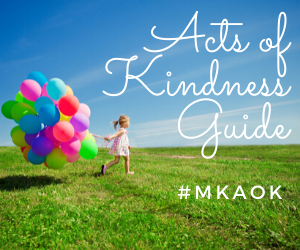Children likely have questions about what happened at the U.S. Capitol Jan. 6. They might have fears and questions, especially given the year they've already been through.
At least some of us are unsure about how to respond or how much to say to our kids about what unfolded.
Dr. Laura Gerak, a pediatric psychologist with Akron Children’s Hospital, offered these tips on how to talk to your kids to WKYC Channel 3, a Cleveland TV station:
1. Prepare yourself
Take a deep breath, center yourself, and get grounded for your conversation. Your kids are reading your face and body for the answer to “Are we OK? is my world still alright?” Let your children know with your words and body language that they are safe.
2. Don’t lie or be evasive
It’s important that you be honest and don’t lie about the events of the day. Give them the truth so they know they can come to you with hard things.
3. Acknowledge and validate
Yes, this is scary. Yes, this is a big deal. Yes, this is unusual. So let’s talk about it.
Watch Dr. Gerak's full interview here:
4. Let them guide the conversation
Ask questions like: What did you see? What did you hear? What was scary for you?
When you do this, you can hear what their thoughts are and avoid making assumptions about what you think they need to hear. When you ask questions, you learn what is on their mind, and then you can talk about what is relevant to them. Respond in-kind with observations about what you noticed and observed.
5. Use simple language, especially for young kids
For young kids, use language like, “Those people are mad and they are acting badly.” Use a simple analogy that kids can relate to, like people getting mad at the playground or at school. Then, bring it back to a familiar lesson that kids can understand. “We don’t act like that when we are mad. We don’t break things and fight with people.”
6. Then, focus on the helpers
Ask questions like: “Where are the helpers? Do you hear the sirens?” Talk with your kids about the Capitol police. “They are specially trained and they are taking care of the people inside — that’s their job. Who would you go to if you need help?”
7. For older kids, it is an opportunity for a history and civics lesson
Research with your older kids about the last time the Capitol was breached. Understanding the historical significance and context of the events of today is a great discussion and also makes today feel a bit less scary. Talk about other times a small group of people took it too far, and who were the people who made it right.
8. Talk about values
For older kids, bring the conversation back to your values: Talk about how you handle conflict in your family. Look at the big picture and talk about what values America represents to the world.
9. Talk about faith
If you are a faith-based family, this is an opportunity to bring your faith into the discussion as well.
10. Turn off the TV
Kids are always reading the room and watching the TV. The truth is important, but the TV can be turned off so that kids don’t get overwhelmed.
Sasha Ridley is the publisher of Macaroni Kid Arlington, Va.

Find your family fun® with Macaroni Kid!
SUBSCRIBE for your FREE Calendar of LOCAL kid & family friendly events IN-PERSON and ONLINE!
 |  |
 |  |
 |




